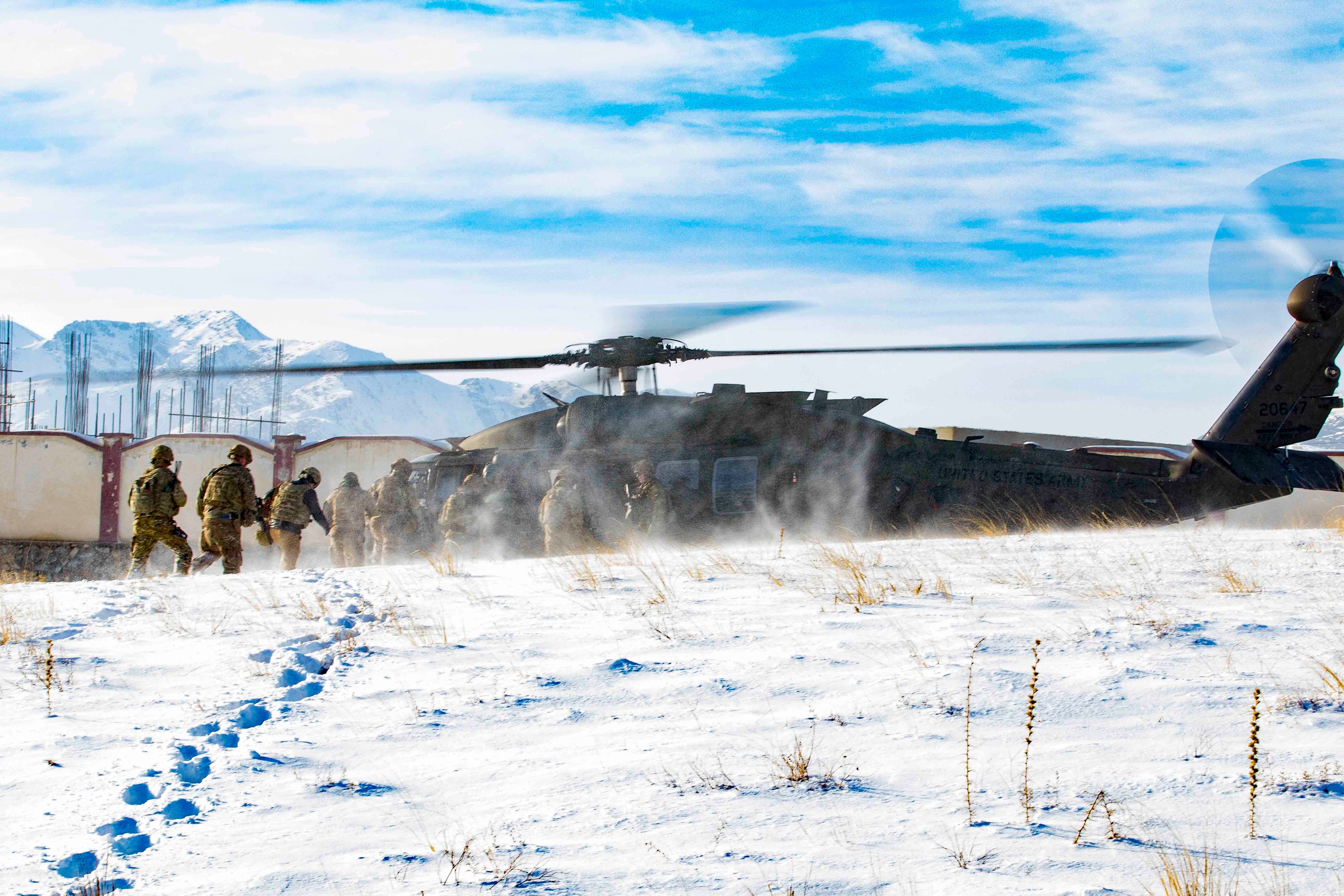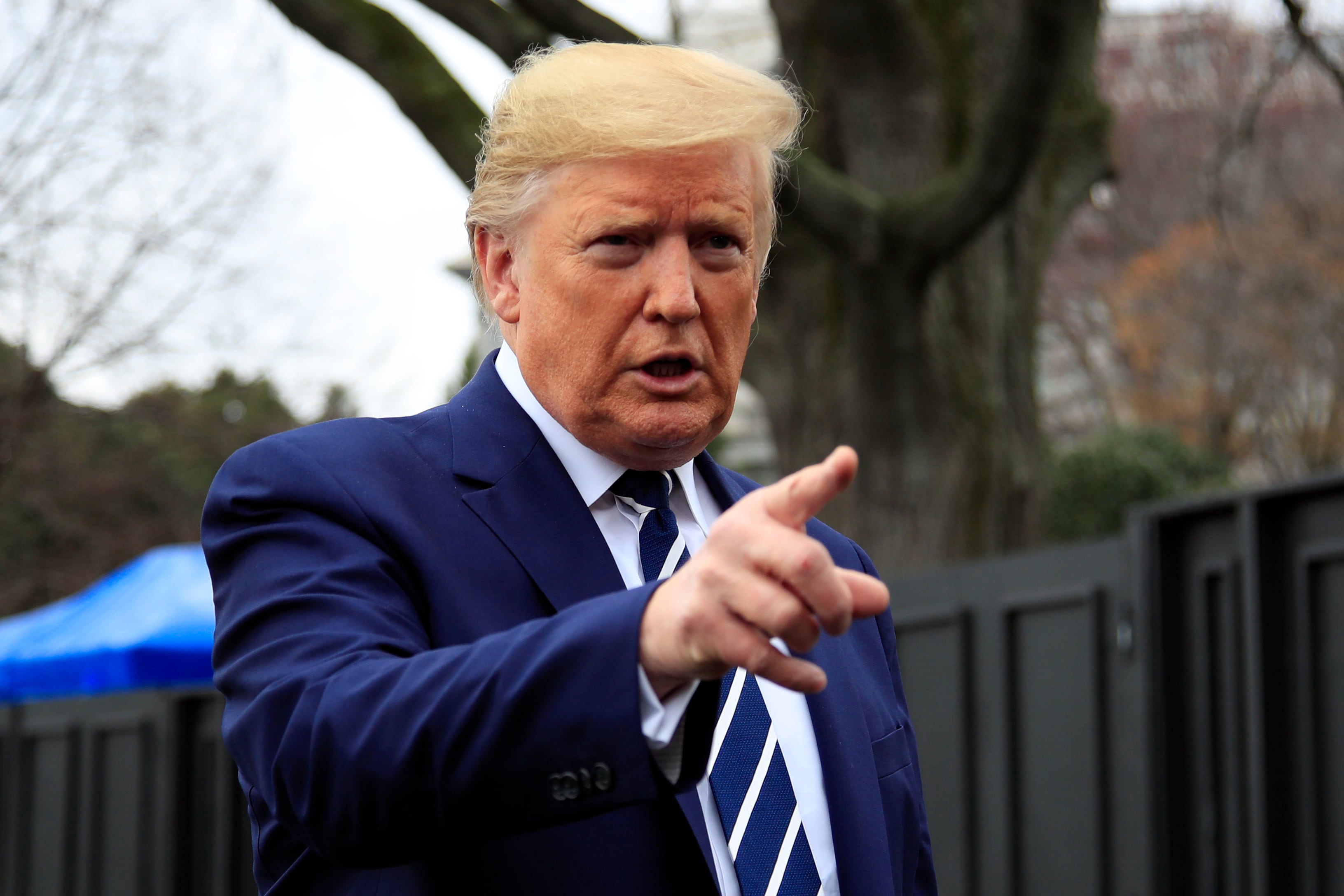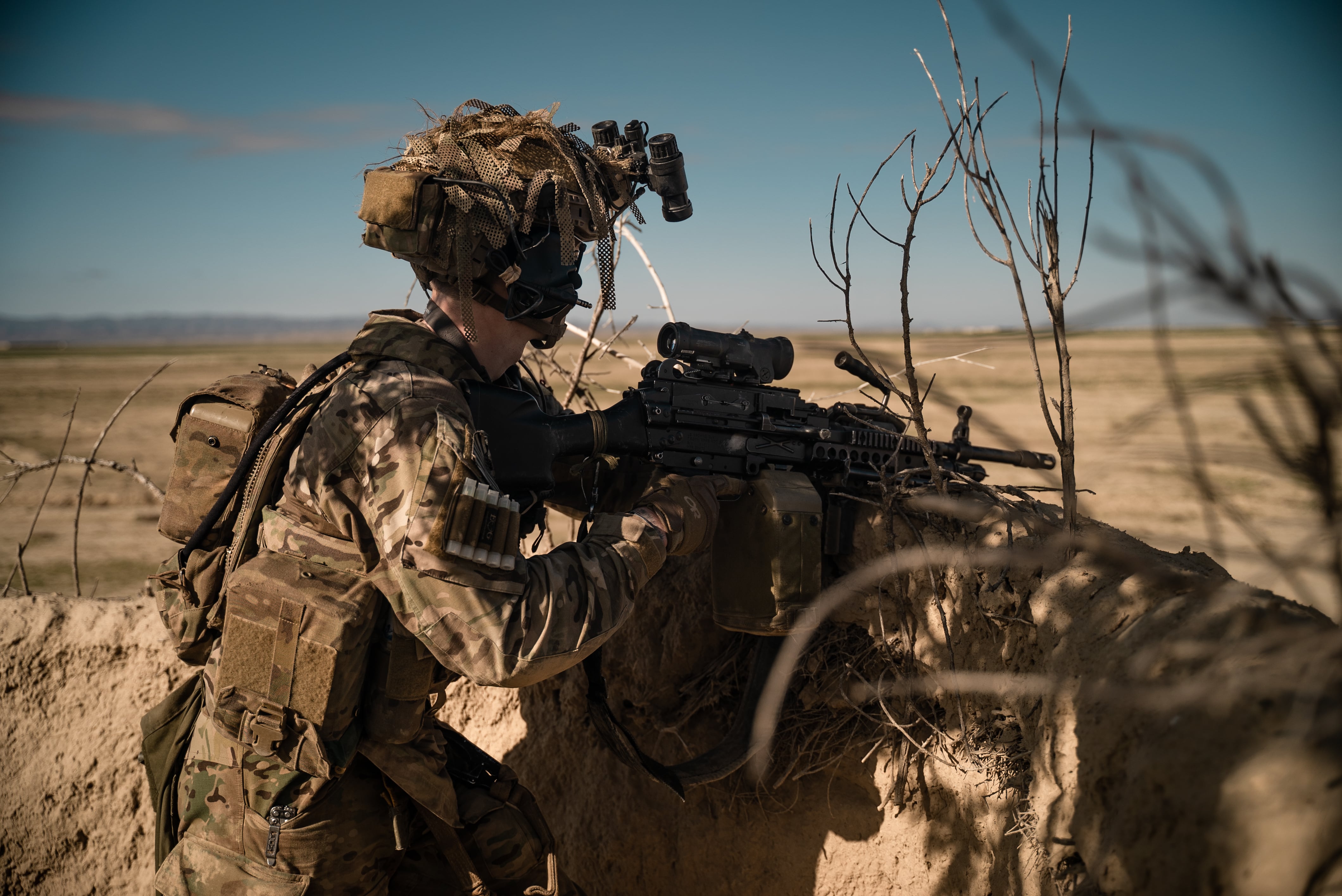President Donald Trump held a phone call with the Taliban and discussed violence across Afghanistan with the militant group.
Trump confirmed that while on the South Lawn of the White House Tuesday.
The Taliban claimed Tuesday that Trump called the militant group’s lead negotiator to discuss the Feb. 29 agreement signed by the two combative foes and upcoming intra-Afghan talks.
“We had a good conversation. We’ve agreed there is no violence. We don’t want violence. But we’ll see what happens. They are dealing with Afghanistan. We had a very good talk with the leader of the Taliban,” Trump said on the South Lawn of the White House.
Military Times has reached out to the White House for a statement and readout of the historic call and has yet to receive a response.
Muhammad Suhail Shaheen, a Taliban spokesman, tweeted Tuesday that the call between the Taliban’s lead negotiator Mullah Abdul Ghani Baradar and Trump lasted roughly five minutes.
The Taliban claim Trump discussed America’s 19-year presence in Afghanistan and the pending withdrawal of foreign forces. The Taliban alleged Trump said the U.S. would help remove hurdles and facilitate talks between the Kabul-based government and Taliban.
Intra-Afghan talks are expected to kick off March 10, following the the Feb. 29 signing of an agreement between the U.S. and Taliban, which could see the withdrawal of all American forces within 14 months.
RELATED

Secretary of Defense Mark Esper has said Saturday’s agreement with the Taliban is conditions based. Esper explained Monday that the U.S. will assess whether the Taliban has lived up to its end of the agreement once American forces drawdown to 8,600 troops over the next several months.
The U.S. could pause or delay the withdrawal of American troops if it believes the Taliban are not living up to their commitments in the agreement, Esper explained Monday.
The fragile agreement between the Taliban and U.S. is already showing signs of cracks. On Monday, the Taliban resumed attacks against Afghan government forces.
The Taliban claim military operations against Afghan security forces does not violate the agreement signed with the U.S., but American officials have expressed that they expect Taliban forces to continue to reduce violence across the Afghanistan.
The Taliban were able to significantly reduce attacks across Afghanistan over a seven-day period, demonstrating the militant group’s ability to control its fighters on the battlefield. The reduction in violence led the U.S. to sign the bilateral agreement with the Taliban on Feb. 29.
Esper told reporters Monday that there is an expectation that the reduction in violence would continue and then “taper off” with the signing of the deal, but ultimately intra-Afghan talks will lead to a cease-fire.
“We will take this one day at a time,” Esper said. The peace process in Afghanistan will be “long, windy bumpy road” with starts and stops.
The next step in the peace process, intra-Afghan talks, could be derailed over disagreements between the Taliban and Afghan government.

Afghan President Ashraf Ghani has rejected a key prisoner exchange the Taliban argue was already hashed out in its deal with the U.S.
According to the Taliban, 1,000 Afghan government and security forces members held by the militants are to be exchanged for 5,000 Taliban detained by the Kabul government by March 10 — the expected start of intra-Afghan talks.
Esper told reporters Monday that the U.S. had only agreed to help facilitate a prisoner exchange between the Taliban and Afghan government.
Secretary of State Mike Pompeo said Monday during an interview on Fox News’ “Special Report with Bret Baier” that the U.S. currently has a team on the ground trying to deliver on the prisoner exchange and violence reduction.
RELATED

But Pompeo cautioned that the peace agreement is still early in the stages and said people need to focus on actions happening on the ground and not rhetoric emanating from any particular camp.
“Just watch what really happens. Pay less attention to statements, pay less attention to things people say. Watch what happens on the ground. There’s been a lot of work done at detailed levels about how this will proceed,” Pompeo told Baier.
Despite the U.S. agreement with the Taliban, American warplanes continue to pound ISIS fighters in Kunar Province, Afghanistan.
Col. Sonny Leggett, the spokesman for U.S. Forces Afghanistan, tweeted U.S. airstrikes over the last six days in Kunar have killed 18 ISIS fighters.
“USFOR-A will continue to deny safe havens to terrorists who seek to disrupt” the Afghan peace process, Leggett tweeted.
Shawn Snow is the senior reporter for Marine Corps Times and a Marine Corps veteran.
Leo covers Congress, Veterans Affairs and the White House for Military Times. He has covered Washington, D.C. since 2004, focusing on military personnel and veterans policies. His work has earned numerous honors, including a 2009 Polk award, a 2010 National Headliner Award, the IAVA Leadership in Journalism award and the VFW News Media award.





